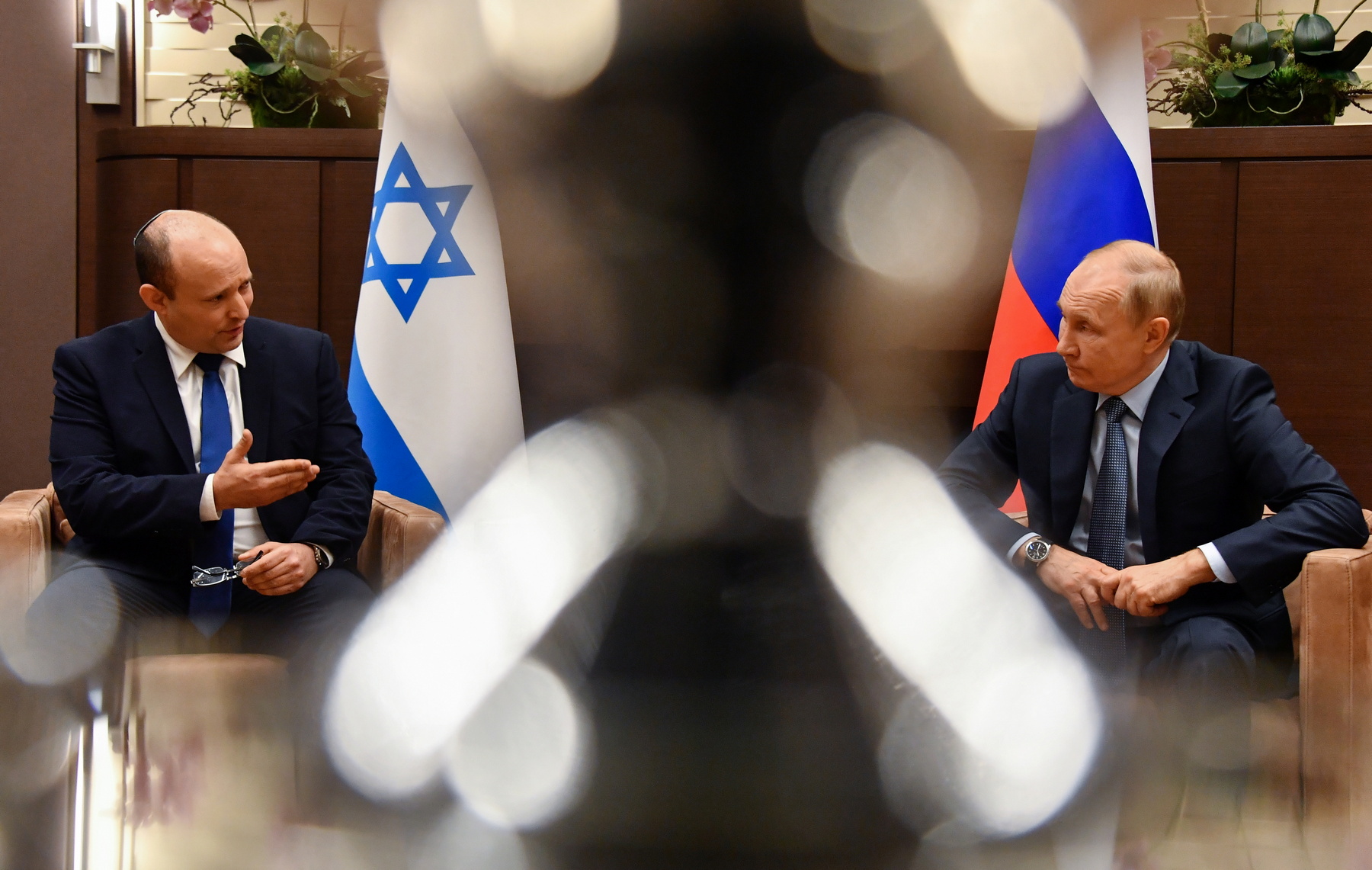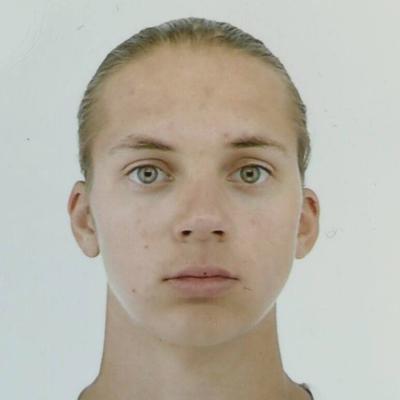To mark 30 years of renewed diplomatic ties between Israel and Russia, Vladimir Putin welcomed the new Israeli Prime Minister Naftali Bennett to Sochi for their first meeting on October 22nd. This was seen by analysts from both countries as a first impression worth watching. After all, Russia’s relations with Israel have risen in significance since Russia’s military intervention in Syria. On top of that, personal ties between Vladimir Putin and foreign leaders are often deemed crucial for the overall relationship between Russia and other countries because of the centralised nature of the Russian state.
This seemed to be particularly true in Israel’s case when former Israeli Prime Minister Benjamin Netanyahu was in power. “Bibi” sought to attract the votes of Russian-speaking Israelis by emphasising his close personal ties with Putin. He allegedly sent a private note to Putin after his own loss of power to promise the Russian leader that he “will be back soon”.
So Bennett’s take-over as Prime Minister raised questions about what will change — and for how long. The Kremlin’s spokesperson Dmitry Peskov indeed noted a few days before Bennett’s meeting with Putin that “it takes time to develop a new personal relationship”. For now, Bennett has sought to exhibit continuity. His unplanned stay over Sabbath in Sochi was explained as a result of the leaders’ “especially warm” personal ties.
Intertwined histories
Hyping personal ties between the two countries’ leaders — including happy images of Black Sea strolls — is largely destined to domestic audiences. For Bennett, it exemplifies his capacity to fill Netanyahu’s shoes and curries favour with Russian-Israeli voters. For Putin, it fits a narrative promoting a multicultural Russian national identity.
Moscow in recent years has been keen to position its multi-ethnic and multi-faith population as a root of Russian uniqueness. The “diversity” of the Russian population is depicted as constituting “the foundation of Russia’s greatness and strength”. That is underscored by moves like supporting Jewish institutions in Russia. Equally, in relations with Israel, Moscow points to “shared historical memory and cultures.” Putin argues that Russia has a unique bond with Israel because Israelis of Soviet backgrounds act as “bearers of Russian culture, Russian mentality,” constituting a bridge between the two states.
Plus, Putin’s emphasis on the Soviet Union’s victory against the Nazis — a cornerstone of Russian exceptionalism and claim to great power status — resonates in Israel. (Moscow plays down the Molotov Ribbentrop pact or the Soviet Union’s ‘anti-Zionist campaign’). In Israel, Russian diplomats praise the decisive contribution of the Red Army to saving Jews, such as the liberation of Auschwitz in 1945. In this way, Moscow praises Israel as Russia’s only ally in pushing back against what it denounces as “historical revisionism” of the ‘Great Patriotic war’.
In turn, Russia’s desired historical narrative is largely accepted in Israel. Foreign minister Lapid often refers to his own family to emphasise that Jews and Soviets stood on the “same side of the historical barricade”. These social and historical factors constitute an important background. However, they do not determine Russia’s foreign-policy stance to Israel. Contemporary regional security issues and Russia’s pursuit of a great-power status take the upper hand.
Israel-Palestine
The Israeli-Palestinian conflict was scarcely addressed in the dialogue with Bennett this time. However, Moscow tends to instrumentalise the conflict in its pursuit of status by boasting about maintaining ties with all sides.
Contrary to its denunciation of all forms of radical Islamism present in Syria, Moscow welcomes representatives of Hamas and Palestinian Islamic Jihad in Moscow. It argues that it does so to promote peace because the conflict creates security issues for the Middle East but also for Russia itself.
Putin indicated during the latest round of confrontation between Israel and Hamas that the “escalated Palestinian-Israeli conflict” is “happening in the immediate vicinity of our borders and directly affects our security interests”. Russian diplomats have argued that images of clashes between Israeli and Palestinian in Jerusalem fuel the radicalisation of Russian Muslims as Islamist terrorists might instrumentalise these events to promote their ideology. Such an explanation seems unconvincing. There is a limited resonance of the conflict in Russia, even compared to countries such as France or the United Kingdom.
Rather, Putin’s statement underlines Moscow’s reliance on security-based arguments to appear as a legitimate, even-handed and stabilising power in the region. Moscow has sought to rely on the momentum of the Abraham Accords to promote the mediation format “4+4+2+1” based around “regional inclusivity”. Such a format would include members of the Middle East Quartet — four Arab states that have ties with Israel (Bahrain, Egypt, Jordan and the United Arab Emirates) — plus Israel and the Palestinian Authority — and, finally, plus Saudi Arabia.
However, the current Israeli government prefers to “shrink the conflict” (i.e eliminate some points of frictions between the two sides) rather than reach an all-encompassing and permanent agreement.
In that sense, Russian mediation is seeking to replicate highly visible diplomatic initiatives such as the Madrid Conference of 1991 for status gains, while failing to adapt to the evolution of the conflict. Moscow might boast about having ties with all sides. But in practice, it fails to leverage such positioning to advance its desired status.
Syria and Iran
Since 2015 and its military intervention in Syria, Russia became, in the words of Naftali Bennett, “a kind of neighbour for [Israel] in the north”. Russia’s control of Syria’s skies has forced Israel to be careful to stay on the good side of Moscow. Israel’s aim of preventing Iran and its proxies’ encroachment in Syria requires Moscow turning a blind eye to F-35 strikes.
Yet this creates an awkward balancing act for Russia. Because one of the main priorities of Russian foreign policy in the Middle East is to maintain ties with both Iran and Israel at once. Moscow derives status in the Middle East from having placed itself as a key intermediary for both countries: it denounces Israeli strikes in its dialogue with Tehran, while it lets Israel conduct strikes that fit Moscow’s interest of containing the Iranian presence in Syria.
Repeated predictions come and go about an imminent breakdown of Russia’s equilibrium between Iran and Israel. Indeed, the downing of a Russian plane by Syrian air-defence systems during an Israeli air raid, or the killing of Iran general Qassem Suleimani have certainly put Moscow’s diplomatic balancing to the test. Even in these challenging times, Moscow has demonstrated its ability to keep its desired position between Israel and Iran.
Now, however, Israel is increasing its efforts to push back against Iran’s presence north of the Golan Heights. Tehran is coming closer to Israel’s borders with a new arrangement over the province of Daraa and the disbanding of a Russian-formed militia in the region. Russia had been trying since 2018 to limit the Syrian regime and Iranian proxies’ presence in the south. The failure of such efforts in face of increasing Iranian pressure might undermine Moscow’s credibility and thus its relevance in the eyes of regional actors.
This is not to say that Russia’s balancing act between Israel and Iran will come to an end. The chief of the Iranian General Staff met with Minister Shoigu in mid-October to sign contracts on arms purchases. So all seems to still function there. With Israel, aside from a demand for it to be more precise in the coordination of strikes, there was little pushback on the Russian side against Israeli actions during the meeting with Bennett. The balancing still goes on.
However, a divide between the Russian Ministry of Foreign Affairs (MFA) and the Ministry of Defence (MoD) has become increasingly apparent since Naftali Bennet became Israeli prime Minister. Minister Sergey Lavrov implicitly legitimised Israeli strikes by referring to it’s national security interests. The MoD has been more vocal in its denunciations of Israel. It is apparently willing to intensify training for Syrian air defence crews. This inner divide within the Russian establishment creates mixed signalling that may help Russia balances ties with opposite actors. Yet it could risk causing misunderstandings and eroding Moscow’s credibility.
In such a context, Moscow is looking to create new agreements with different parties. It is pushing to host a meeting between Russian, American, and Israeli security advisors to discuss the expansion of Iranian presence and appear as a stabilising great-power on par with Washington. However, Russia will have to show its capacity to restrain Iran to restrain to the north of Golan.
This might be tough for Russia given the reignited struggles over the Iranian nuclear issue. Diplomatic talks are at a standstill since the election of Iranian hardliner Ebrahim Raisi. Moscow insists on reaching a diplomatic solution, while Israel is calling for an “alternative plan B”. While Russia will likely blame the U.S for having withdrawn from the nuclear deal if tensions further escalate, the breakdown of those talks could shed light on Moscow’s limited diplomatic leverage over Tehran — the opposite of its boasting about its contribution to the signature of the JCPOA. In sum, six years after its military intervention in Syria that increased Russia’s standing in the eyes of Israel, Russia’s capacity to sustain such status on a long-term basis by delivering on the diplomatic front might now come under scrutiny.










